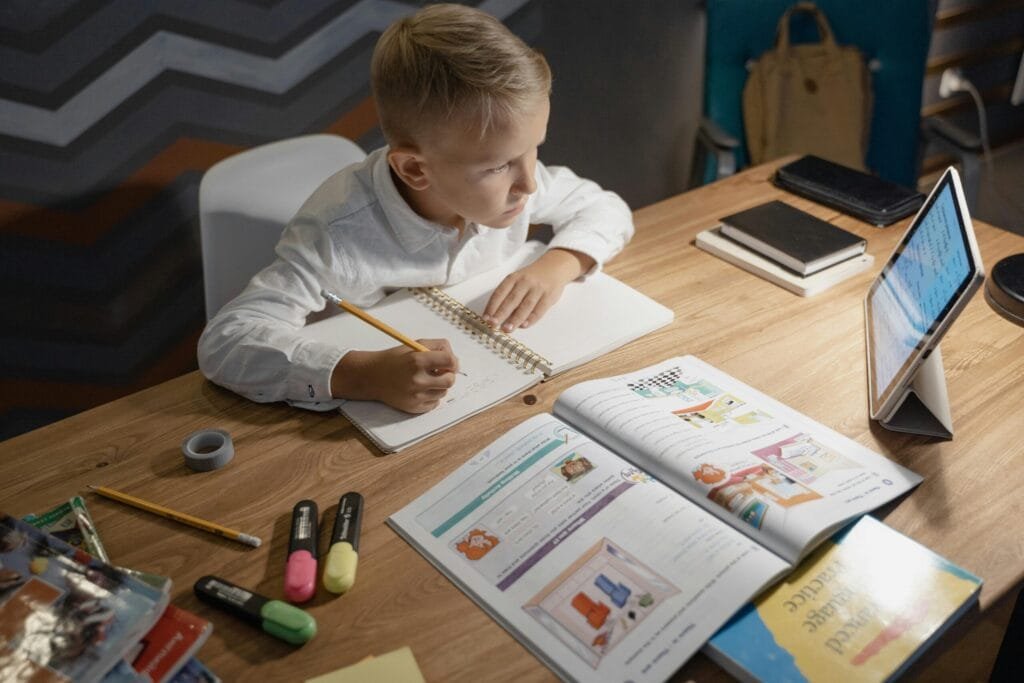
Key Takeaways
- Introducing tech too early can overwhelm emotionally intense teens.
- Emotional readiness—not age or intelligence—should guide timing.
- Devices should support, not substitute, connection and creativity.
- Boundaries, modeling, and open conversation help kids self-regulate.
- What seems like a “small tech decision” can shape emotional development for years.
“Everyone Else Has One, Mom!”
“I can handle it. I’m not like the others.”
Sound familiar?
As a coach for gifted teens, I’ve heard this line more times than I can count—usually from kids who ace calculus but melt down when they lose a video game or get left on “read.” These are bright, curious, emotionally intense youth who feel everything deeply—even things their parents may not notice.
And when the topic turns to getting their first smartphone or tablet, it becomes more than a question of tech. It becomes a mirror of the family’s values, the teen’s coping strategies, and their emotional maturity.
Why Intellectual Readiness ≠ Emotional Readiness
Gifted teens often process information like adults but regulate emotions like children.
They can write essays about the ethics of AI—but panic when their Snapchat streak ends. They can research coding languages—but spiral into self-criticism when they’re not instantly good at a new app.
This mismatch is known as asynchronous development. As psychologist Dr. Linda Silverman explains, gifted kids may be years ahead intellectually, but still need age-appropriate support in emotional growth.
A device placed in their hands too early can amplify stress, comparison, and perfectionism—especially when they’re already prone to overthinking and emotional overload.
The Question Parents Should Be Asking
It’s not:
“Is my teen smart enough for a device?”
It’s:
“Is my teen emotionally ready to use this tool in a healthy, balanced way?”
This shifts the conversation. We’re no longer using tech as a reward for high achievement—but treating it as a developmental milestone, like learning to drive. It requires:
- Self-regulation
- Accountability
- Emotional awareness
- Respect for boundaries
Otherwise, the device becomes not a support—but a trigger.
A Moment of Reflection from a Coach
Just recently, I was reading a review of a budget tablet—the Positivo Vision Tab 7. It’s marketed as a simple, affordable option for families. On the surface, it’s a great deal. But it got me thinking:
“What makes a device a good idea for a teen? Is it the specs… or the timing?”
Reading the review reminded me that many parents are asking the wrong question. They’re wondering which tablet to buy, but not when—or why—to give it at all.
If you’re curious, here’s the article that sparked my reflection:
https://vkcircle.comvkcircle.com
Signs Your Teen Might Not Be Ready Yet
If your gifted teen:
- Obsessively checks grades or social media
- Has trouble managing frustration or sleep
- Struggles with comparison or self-worth
- Melts down during transitions or minor setbacks
Then the device may need to wait. Or it may need to come with strict scaffolding:
- Clear screen-time boundaries
- Purposeful usage (e.g., creative apps vs. social scrolling)
- Nighttime shutdowns and parental check-ins
- Ongoing conversations about digital pressure
What Devices Can Teach—When Introduced Well
When introduced mindfully, a device can help a gifted teen:
- Practice digital organization and time management
- Explore interests (music, design, writing, coding)
- Stay connected with mentors and healthy peer groups
- Learn emotional regulation through feedback loops
But that only works when the device isn’t a pacifier, a status symbol, or an emotional crutch.
Final Thought: It’s Not About Saying “No”—It’s About Saying “Not Yet”
You’re not depriving your child when you delay a device. You’re honoring their emotional development.
As a parent of a baby myself—only 8 months old—I already think about how I’ll introduce technology in our home. I’m not rushing to decide. Because I’ve seen the difference it makes when parents lead with connection, not just convenience.
So ask yourself this:
“Is my teen emotionally prepared to use this tool for growth—not distraction?”
Because in the long run, how you give them the device matters far more than when.

A certified Heal Your Life® Coach with 20+ years in education and emotional development. Supports gifted teens in navigating anxiety, perfectionism, and identity challenges, while equipping parents with practical tools for lasting transformation. Sessions blend emotional healing, mindset mastery, and strategic empowerment.



